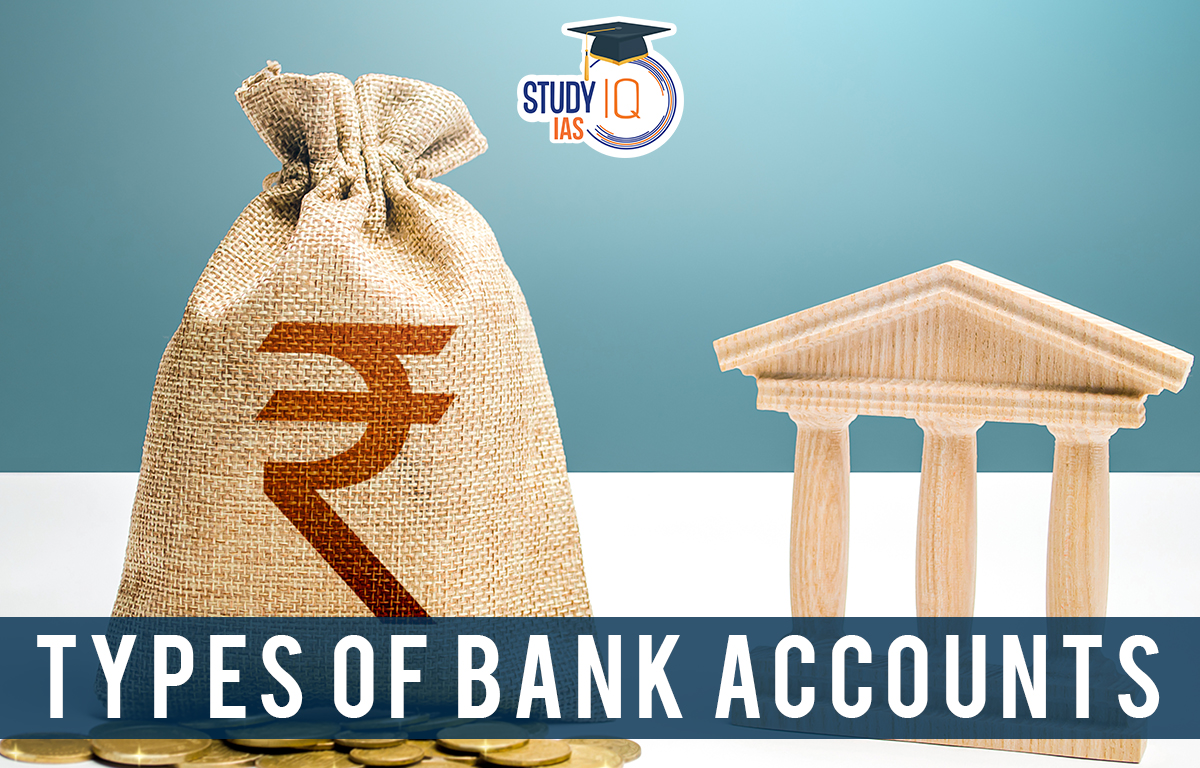Table of Contents
Types of Bank Accounts in India
Bank accounts in India are broadly classified into different types based on their purpose and features. They offer various benefits and facilities to their customers such as safe storage of funds, easy access to money, and attractive interest rates. The Types of Bank Accounts vary based on factors such as the account holder, the purpose of the account, the frequency of transactions, and the terms and conditions associated with deposits and withdrawals.
Read More: Indian Financial System
List of Types of Bank Accounts in India
Here is a list of various Types of Bank Accounts in India.
| S. No | Account Type | Who can Open | Provisions of Deposit | Provisions of Withdrawal |
| 1 | Savings Account | Individuals, trusts, and charitable institutions | Unlimited deposits allowed, usually low-interest rate | Limited withdrawals are allowed per month, usually through cheques and ATMs |
| 3 | Current Account | Businesses, companies, and entrepreneurs | Unlimited deposits are allowed, usually with no interest rate | No limit on withdrawals, usually through cheques and electronic transfers |
| 4 | Fixed Deposit Account | Individuals and businesses | Fixed amount of deposit for a fixed period of time, high-interest rate | Withdrawals are not allowed before the maturity date, the penalty may apply |
| 5 | Recurring Deposit Account | Individuals | Regular fixed deposits at fixed intervals, high-interest rate | Partial withdrawals are not allowed, the penalty may apply for early closure |
| 6 | NRI Account | Non-resident Indians | Deposits in foreign currency, high-interest rate | Limited repatriation of funds, only certain types of transactions allowed |
Read about: List of RBI Governors of India
Other Different Types of Bank Accounts in India
Senior Citizen Account
This account is meant for individuals above a certain age (usually 60 years). The account may offer higher interest rates and other benefits to senior citizens.
Joint Account
This account can be opened by two or more individuals. All account holders have equal rights to operate the account.
Basic Savings Bank Deposit Account (BSBDA)
This account is meant for individuals who do not have a regular source of income. The account can be opened with zero balance and there are no restrictions on the number of deposits or withdrawals.
Read More: Types of Banks in India
Cash Credit Account
This account is meant for businesses and allows them to borrow money against their inventory or receivables. The interest rate on a cash credit account is usually higher than on other types of loans.
Overdraft Account
This account allows individuals or businesses to withdraw more money than the balance in their account, up to a pre-determined limit. The account holder is charged interest on the amount borrowed.
Read about: Finance Ministers of India List
Types of Bank Accounts in India UPSC
Knowledge about the types of bank accounts in India is essential for candidates preparing for the UPSC exam. This topic is an important part of the UPSC Syllabus for the Prelims and Mains examination. Aspirants can expect questions related to the types of bank accounts in the economy and their features in the General Awareness section of the exam.
A thorough understanding of these topics can be achieved through online coaching, such as StudyIQ UPSC Online Coaching, and by taking UPSC Mock Test to assess one’s understanding of the subject.
Read about: India’s GDP Growth Rate


 Goods and Services Tax (GST), Objectives...
Goods and Services Tax (GST), Objectives...
 World Oceans Day 2025, History, Theme, S...
World Oceans Day 2025, History, Theme, S...
 World Environment Day 2025, Theme, Histo...
World Environment Day 2025, Theme, Histo...





















